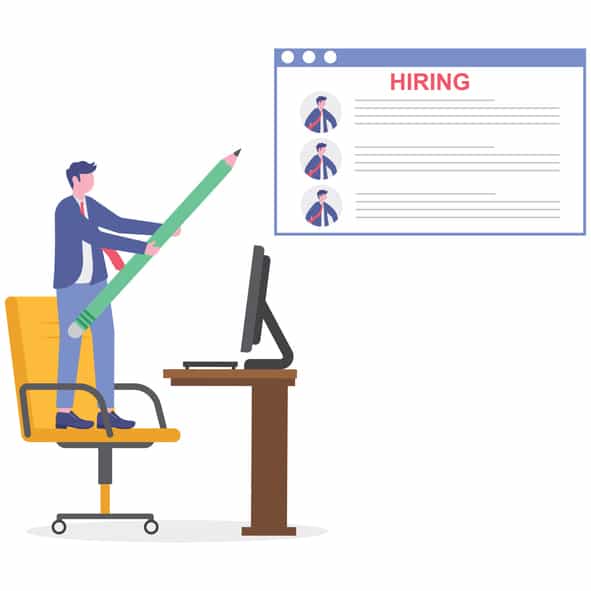Hiring manager responsibilities go beyond signing off on candidates. They shape the entire hiring process, from defining the role to ensuring a new employee succeeds once they start.
When these responsibilities are handled well, hiring becomes faster, more consistent, and more effective. When they’re ignored, companies risk wasted time, mismatched hires, and higher turnover.
Defining Hiring Manager Responsibilities
At its core, a hiring manager is responsible for ensuring the right person is hired for the right role.
Unlike recruiters, who focus on sourcing, or HR, who focus on process, hiring managers bring the team’s perspective.
They know the skills, behaviors, and outcomes the role requires.
Their responsibilities stretch across every stage of the hiring cycle: planning, evaluation, decision-making, and onboarding.
Responsibilities Before the Hire
Define the role clearly. Hiring managers must create or approve accurate job descriptions that outline real skills and performance goals, not generic buzzwords.
Align with HR and recruiters. They set expectations early, so the recruiting team targets the right candidates and avoids wasted outreach.
Set hiring criteria. They distinguish must-have requirements from nice-to-have qualities, ensuring evaluation stays consistent.
Without this upfront work, the process often starts on the wrong foot, with mismatched candidates and unclear expectations.
Responsibilities During the Process
Participate actively in screening. Hiring managers review resumes and shortlist candidates, providing context recruiters cannot.
Lead structured interviews. They prepare questions tied to job requirements and values, not just gut feel.
Provide timely feedback. Quick responses keep candidates engaged and prevent top talent from dropping out.
Here, hiring manager responsibilities directly influence candidate experience. A slow or unclear process can turn strong applicants away.
Responsibilities After the Hire
Onboard effectively. New employees need clear goals, early wins, and cultural introduction. Hiring managers must own this, not leave it to HR alone.
Set performance expectations. They explain what success looks like in the first 30, 60, and 90 days.
Support retention. Continuous feedback and mentorship are part of hiring manager responsibilities, ensuring that the time invested in recruiting isn’t wasted through early attrition.
This stage is often overlooked, but it’s where good hires become long-term contributors.

Final Thoughts
Hiring manager responsibilities are not optional checkboxes. They define whether a hiring process builds strong teams or stalls with missteps. By owning their role at every stage, before, during, and after the hire, managers can transform hiring into one of their most effective leadership tools.
Want help streamlining hiring manager responsibilities in your organization?
Let’s talk about how we can support your hiring goals.









